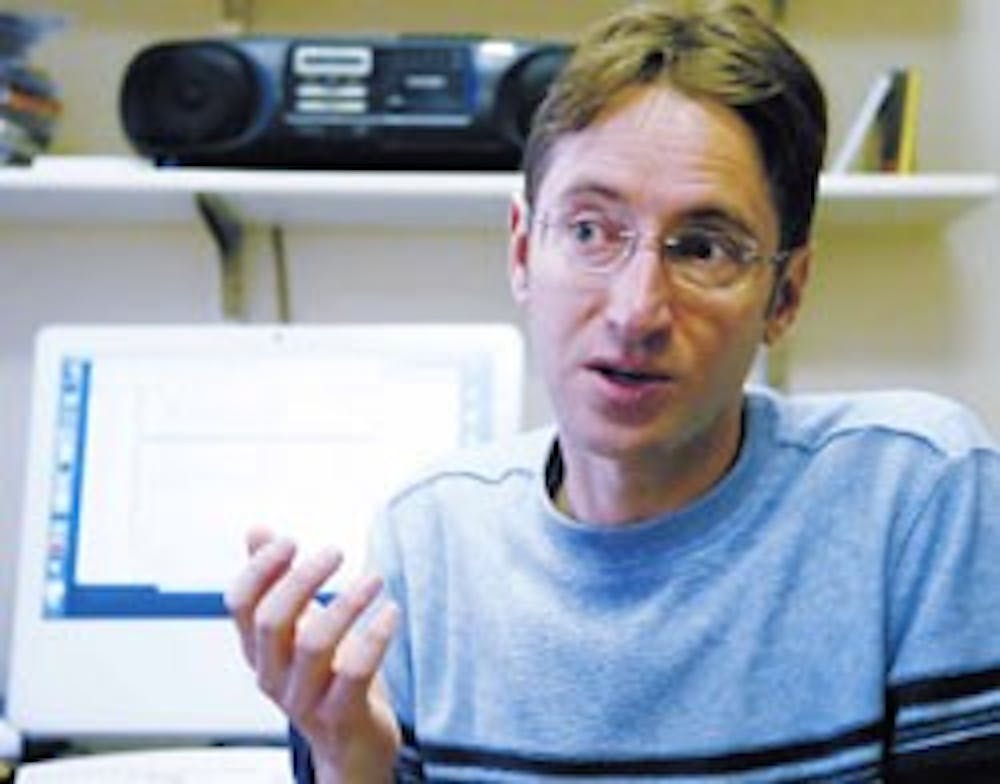by Caleb Fort
Daily Lobo
Hackers often use networks of hijacked computers called botnets to send spam and attack Web sites.
But defending against hackers is usually left up to single computers.
"If you have one person trying to prevent action from hundreds of thousands of computers working together, the chances aren't very good," said Jared Saia, a UNM professor of computer science. "It's a one-against-many battle."
Get content from The Daily Lobo delivered to your inbox
Saia is trying to change that with an
algorithm that allows a group of computers to work together, even if some members of the network are trying to disrupt it.
The algorithm is based on the Byzantine agreement problem.
In the hypothetical situation, several Byzantine generals have surrounded a city and are preparing to attack it. In order for the attack to be successful, the generals have to agree on one plan of attack.
However, a secret group of evil generals is trying to thwart the attack by disrupting the communication between the good generals.
Saia said his algorithm would allow the good generals to collaborate despite the efforts of the evil ones.
The problem is an analogy to the Internet, where hackers try to disrupt the activities of computer users.
Other people have created solutions to the problem, but they cannot be used for Internet-sized groups of computers, he said.
"With the Byzantine agreement, people have either gotten security or scalability," he said. "Getting one of those two things isn't hard, but it's difficult to get both
of them."
Saia was awarded a $400,000 National Science Foundation grant to continue work on the algorithm over the next five years.
He has been working on the algorithm and proofs of its correctness for about three years.
He has co-authored more than five papers about it with researchers from Microsoft, Yahoo! and Tel Aviv University.
Once the algorithm is turned into code, it could be used for spam filters and virus protection,
Saia said.
Most security relies on encrypting information, but new computers - called quantum computers -- might be able to break the
encryption.
"That suggests that we need new techniques," Saia said. "People who attack systems are very clever, and they increasingly have financial
incentives for what they do."
People who take over large groups of computers rent them to spammers. They also hold Web sites hostage by threatening to attack them if they don't pay up.
"That used to frequently be on Web sites that are sort of quasi-legal, like offshore gambling, but it's starting to happen to more mainstream Web sites," Saia said. "It's a bad situation right now. The
criminals are using the power of collaborative computing. In order for us to fight them, we should also be taking advantage of that. We're simply not doing that right now."
It's easier for criminals to attack than for other people to defend, Saia said.
"Not only are they evil, they're omniscient," he said. "The problem is that hackers can hide, but it's fairly easy for them to figure out what techniques we're using. The hackers have this element of surprise that we don't."
Besides making the Internet safer, Saia said he hopes his work will inspire more students to study computer science.
"I feel that there are many students who feel like computer science is just making Web sites and things like that," he said. "In fact, there are these very challenging and interesting mathematical problems that need to be solved."






